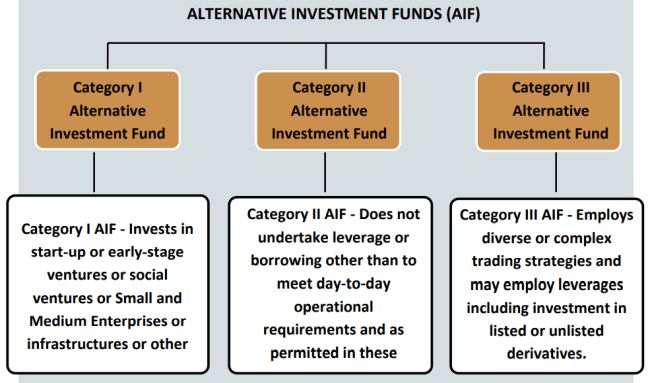As per a research report1 published by Goldman Sach Research titled, "The rise of 'Affluent India'"2, the cohort of affluent consumers will increase from around 60 million (6 crores) to 100 million (10 crores) people by 2027. This new found wealth is driving a demand for more exciting investment options beyond traditional favorites like bank deposits, ornamental gold, government schemes, etc., the investments options available currently in financial securities like bonds and stocks to purchase of mutual funds, has led to rise in number of Indian consumers becoming affluent.
However, a few High-Net-Worth Individuals (HNIs), who have investible assets such as bonds or stocks which are valued between Rupees 5 lakhs and Rupees 5 crore.3 Such HNIs who are willingly to take high risks for higher profits can trade in one such type of investment, Alternative Investment Funds (AIF). Unlike traditional options, AIFs invest in a wider range of assets, offering a chance to tap into potentially lucrative but less mainstream markets.
What exactly is an AIF?
In simpler terms, an AIF is a privately managed investment fund that collects money from investors, both domestic and foreign. These funds can be structured as trusts, companies, or limited partnerships. But unlike mutual funds, AIFs come with stricter regulations and higher investment minimums.
"Alternative Investment Fund" is any such fund established or incorporated in India in the form of a trust or a company or a limited liability partnership or a body corporate which –
- is a privately pooled investment vehicle which collects funds from investors
- the investors who can invest in such fund can be Indian or foreign.4
Who can invest in AIFs and what is the minimum amount to be invested?
- Investors who are willing to invest an amount of at least INR 1,00,00,000/- (Rupees One Crore) shall be eligible to invest in such AIFs, provided:
investors who are employees or directors of the AIF or employees, the minimum value of investment shall be INR 25,00,000/- (Rupees Twenty-five Lakhs)5.
For an AIF to receive investment, it shall be registered with Securities Exchange Board of India (SEBI)6. AIFs can obtain registration from SEBI under 3 categories as follows

To view the full article, click here.
Footnotes
1. The article reflects the general work of the authors and the views expressed are personal. No reader should act on any statement contained herein without seeking detailed professional advice.
3. https://www.business-standard.com/about/who-is-high-net-worth-individuals
4. Section 2(b) of Securities and Exchange Board of India (Alternative Investment Funds) Regulations, 2012
5. Section 10(c) of Securities and Exchange Board of India (Alternative Investment Funds) Regulations, 2012
6. Section 3(1) of Securities and Exchange Board of India (Alternative Investment Funds) Regulations, 2012
The content of this article is intended to provide a general guide to the subject matter. Specialist advice should be sought about your specific circumstances.


